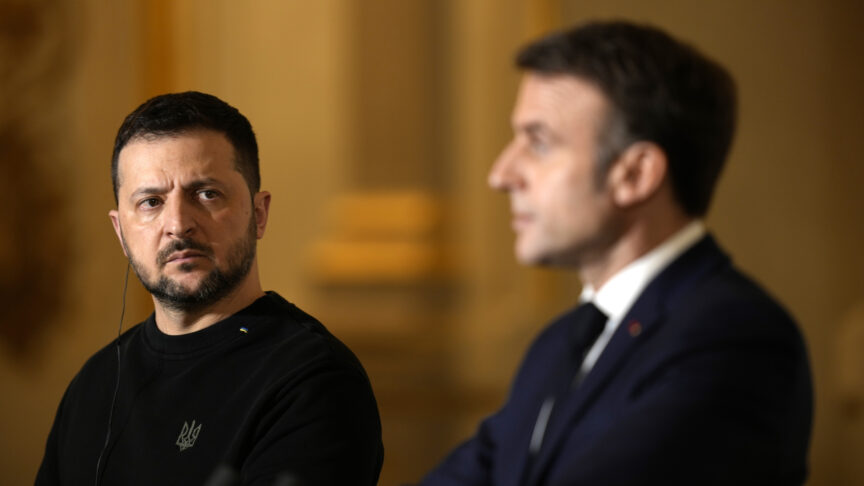Russia’s military victory masks diplomatic impotence in Syria
Damascus has continually rebuffed Russian efforts to pivot to a political track, highlighting Moscow’s apparent inability to rein in its client.
Russian President Vladimir Putin’s visit to Hmeimim airbase in Syria on 11 December was Moscow’s ‘mission accomplished’ moment. More than two years after the beginning of Russia’s military intervention in the country’s civil war, Putin ordered the “victorious” return home of a “significant” element of the country’s military presence. But while Russia may have now secured Syrian President Bashar al-Assad’s position, highlighting the decisiveness of Russian military might, Putin is nonetheless still struggling to shape a political track able to deliver the international legitimisation that Russia apparently craves.
Much of what President Putin said in Syria this week is undeniably true. With Russian support the Assad government has secured its position, first defeating anti-government rebels – who Moscow and Damascus labelled terrorists – before turning their gaze on ISIS and capturing a vast swathe of eastern Syrian from the jihadist group.
Critics have long claimed that Moscow disingenuously targeted more moderate-leaning opposition fighters, leaving ISIS alone. But this ignores Moscow’s longstanding, albeit cynical, view of the Assad central government as the only legitimate vehicle able to defeat extremism. Under this interpretation, the more existential challenge posed to Damascus by non-ISIS rebels necessarily had to be addressed before Assad or Russia could turn their sight on the more distant threat posed by ISIS.
Assad now controls most of the populated areas of the country, all the key cities, and is clearly not going to step down from power any time soon. This is a position now tacitly accepted by many international actors, most of whom have ended ongoing support to the armed opposition and are now essentially deferring to Russian leadership.
But even if the military fruits of this approach are clear, the political fall-out remains uncertain. For Assad, Russian military support has always been seen as a path towards re-asserting total political control over all of Syria. Russia, however, appears to acknowledge that this is not feasible.
This is not merely because of the situation on the ground: regime capacity constraints and ongoing interventions by other international actors appear to rule out any near-term government ambition of re-establishing the pre-2011 centralised political order.
The acknowledgement also appears to reflect Moscow’s desire for international legitimisation of its Syrian venture as confirmation of its great power status, one of the key perceived reasons behind Russia’s initial entry in the conflict.
Without some form of negotiated political settlement to lock in international support – no longer so formidable a task given international acceptance of Assad’s continuity and a wide desire to simply end the conflict – Moscow’s success will be tainted by a lack of finality. Even today, the desire for western reconstruction support seems less about rebuilding Syria than getting wider international sign off for the Russian project.
Russia is now actively seeking to drive forward a political process, working in close cooperation with Turkey and Iran to forge a political track out of the military-centric Astana process. But it is clearly struggling in this endeavour. The new centrepiece of this approach, Russia’s proposed Syria national dialogue congress in Sochi, has already been delayed and has only received lacklustre buy-in from the different warring and international parties.
At the heart of the issue is an apparent Russian inability to force any political concessions out of Assad, despite the fact that fundamental challenges to his authority are no longer on the table. The Syrian leader remains utterly intransigent, unwilling to give even an inch towards any reform measures that could offer the opposition something minimal to hold onto, let alone lock in a sustained decrease in fighting and open up of humanitarian space.
Damascus has continually rebuffed Russian efforts to pivot to a political track. Whether rejecting a proposed Russian-drafted Syrian constitution, walking away from Russian sponsored talks with the Kurds or refusing to attend Russian supported peace talks in Geneva, Assad has demonstrated a flagrant unwillingness to play ball.
Assad remains determined to force Russia to back his ambition of total victory, highlighting Moscow’s apparent inability to rein in its client. Part of Putin’s message to Assad during trip to Syria may have been a reminder of the country’s ongoing dependency on Russia in a bid to press him to come to the negotiating table.
But Assad has cards of his own and has proven adept, often working hand in hand with Iran, at nudging the Russians towards his own position rather than bending the other way. Russia has never deployed sustained, significant pressure on Assad, such as by lifting its UN security council protection of the Syrian government.
Assad appears to remain confident that, having invested so much in Damascus, Putin is now compelled to stay the course. He may be right: in the end, any break with Assad would fatally expose Moscow’s longstanding position on the conflict.
This article was originally published by Valdai Club.
The European Council on Foreign Relations does not take collective positions. ECFR publications only represent the views of their individual authors.


